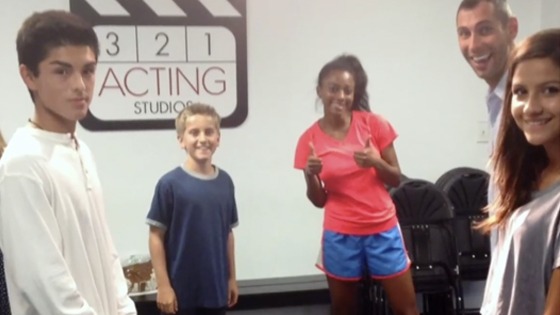
12 Jul Best Acting Technique: 4 Questions to Ask
Here at my acting studio, 3-2-1- Acting Studio in Los Angeles, we equip our students with the best acting technique possible, that will prepare them for a variety of projects and settings. We want our actors to be ready not only for the audition room but for full character arcs of films. We train our students for the long haul, and this training starts with great technique! In terms of best acting technique, here are some foundational questions that I teach my students to ask themselves when preparing for a role:
1. Who is the character that I am playing?
First, you must get very familiar with the character; let’s pretend that her name is Sarah and that she’s a teenager. Who is Sarah? How old is she? If an age is not listed, what is your closest estimate? As we know, there is a big gap between 13 and, say, 17, in terms of how a girl might experience the world around her, so choose wisely based on the information you are given. Where is Sarah from? What does she like and dislike? Is she studious? Athletic? Shy?
2. Who is the other character in my scene?
In terms of best acting technique, when you are preparing for an audition or a filming day, you want to get a clear sense of your character’s primary scene partner(s). If there are multiple people in the scene, of course, have a clear sense of who everyone is — but pay extra attention to the other character that drives the action forward. In this case, let’s make Sarah’s scene partner her dad.
Your character needs to have a very clear point of view for each character that enters the scene. In this case, how does Sarah feel about her dad? Is this a scene about her getting grounded? Or a scene about receiving a birthday gift? Chances are that Sarah has different feelings about her dad at different moments of the day/week/month/year, so be super clear on what is happening at this moment and how that impacts Sarah’s point of view.
3. What motivates or drives my character’s behavior?
In this scene, let’s say that Sarah is 17 and that her dad has just grounded her for breaking curfew. And let’s say that Sarah really wants to go to the homecoming dance the following weekend, with her boyfriend. Sarah is driven by a need for freedom, and by her affection for her boyfriend, who she likes very much and has already made plans with. Perhaps she’s also driven by a fear of missing out on a life milestone with her classmates. When in doubt (and if you have little clear backstory and are able to improvise) make the stakes high: perhaps Sarah’s boyfriend is moving across the country to Texas the Monday after homecoming, and this is the last time she is going to see him for a very long time.
4. What is my character fighting for in the scene?
Your character must always have a clear external, achievable goal. What is your reason for being there? You are fighting for either love, power or money. In this case Sarah is fighting for love. How is she going to get what she wants ? She is going to convince her dad to unground her so she can meet with her boyfriend to reach her goal of being loved.
Get very clear on what your character wants. This will drive the action forward.
Have fun!
As I always say, if we aren’t having fun, then why are we doing it? Enjoy the process of building your characters and of asking yourself key questions. Give yourself permission to be creative; you never know what you might discover! We hope that these tips regarding best acting technique are helpful!



